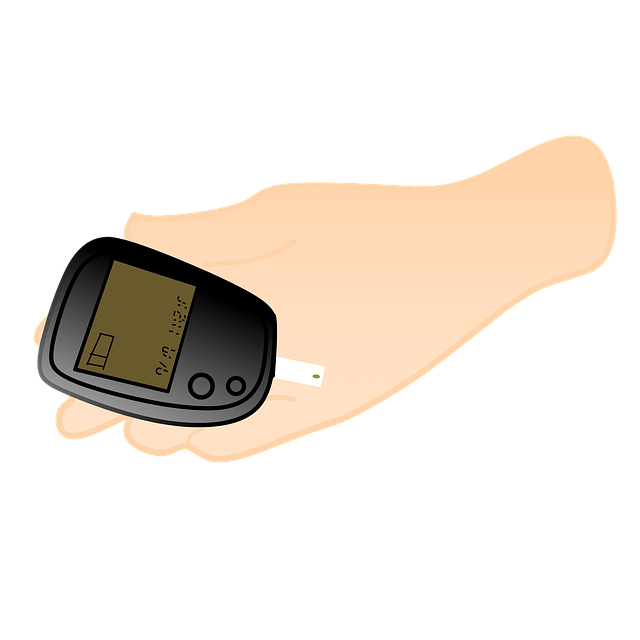A full body blood test, such as a CMP or CBC, is a powerful diagnostic tool that provides insights into overall health by analyzing blood samples for markers related to chronic diseases, infections, inflammation, anemia, and nutrient deficiencies. These tests can detect early signs of conditions like diabetes, heart disease, or thyroid disorders, and are recommended for regular wellness check-ups, especially with age or family history of health issues. Interpreting results, which include cholesterol levels, glucose levels, TSH, and CBC counts, allows healthcare professionals to identify red flags and provide tailored recommendations, enabling proactive steps towards optimal health.
Uncover the power of a comprehensive full body blood test—a powerful tool for detecting underlying health conditions early. This in-depth analysis goes beyond basic screenings, providing insights into your entire system. From immune function and inflammation to hormone levels and organ health, it’s like a map of your internal landscape. Discover when this test is crucial, what it reveals, its benefits, and the next steps towards proactive wellness. Take charge of your health with knowledge.
- Understanding Full Body Blood Test: What It Covers
- When to Opt for a Comprehensive Full Body Blood Test
- Interpreting Results and Common Findings
- Benefits and Next Steps After the Blood Test
Understanding Full Body Blood Test: What It Covers
A full body blood test, also known as a comprehensive metabolic panel (CMP) or complete blood count (CBC), is a broad diagnostic tool that provides insights into your overall health and can detect a wide range of underlying conditions. This test offers a detailed look at various bodily systems, including the kidneys, liver, heart, blood cells, and electrolytes.
By analyzing a small sample of your blood, healthcare professionals can uncover potential red flags associated with chronic diseases, infection, inflammation, anemia, or even nutrient deficiencies. It covers key markers such as glucose levels, indicating metabolic health, kidney function through creatinine and BUN readings, liver enzymes for assessing liver vitality, and complete blood cell counts to identify abnormal white blood cells, red blood cells, or platelets. This holistic approach makes the full body blood test an invaluable resource for early detection and management of diverse medical conditions.
When to Opt for a Comprehensive Full Body Blood Test
A comprehensive full body blood test is a valuable tool for assessing your overall health and identifying potential underlying conditions. Consider opting for this test if you’re experiencing persistent symptoms that don’t seem to have a clear cause, such as fatigue, weight changes, or chronic pain. It’s also wise to get a full body blood test as part of your regular wellness check-ups, especially as you age, since it can help detect early signs of conditions like diabetes, heart disease, or thyroid disorders before they become more serious.
Additionally, if you have a family history of certain health issues or are at higher risk due to lifestyle factors, a full body blood test can provide crucial insights into your current state of health and guide personalized prevention strategies. This proactive approach allows for early interventions that can significantly impact long-term well-being.
Interpreting Results and Common Findings
Interpreting your full body blood test results is a crucial step in understanding your overall health and identifying potential underlying conditions. Each result provides valuable insights, and a comprehensive analysis involves considering the interactions between various blood components. For instance, elevated levels of cholesterol might indicate cardiovascular risks, while abnormal red blood cell counts could suggest anaemia or inflammation.
Common findings from a full body blood test include measurements like total cholesterol, high-density lipoprotein (HDL), triglycerides, and glucose levels, which offer insights into heart health and metabolic function. Other markers such as thyroid-stimulating hormone (TSH) help assess the thyroid’s performance, while complete blood count (CBC) results can reveal inflammation, infection, or conditions like leukaemia. These findings collectively paint a picture of your body’s current state, empowering you to take proactive steps towards maintaining optimal health.
Benefits and Next Steps After the Blood Test
After undergoing a comprehensive full body blood test, understanding the benefits and taking the appropriate next steps is crucial. These tests provide a detailed snapshot of your overall health, allowing for early detection of potential underlying conditions that may go unnoticed through routine checks alone. By analyzing various biomarkers and blood cell types, healthcare professionals can identify red flags associated with chronic diseases, nutritional deficiencies, or even autoimmune disorders.
The next steps following the test typically involve discussing the results with a doctor. They will interpret the data, explain any anomalies, and offer tailored recommendations. This may include lifestyle adjustments, further specialized testing, or referral to a specialist. Regular monitoring and follow-up tests can also be advised to track progress and assess the effectiveness of implemented changes. Embracing proactive healthcare through these measures ensures better long-term health management and peace of mind.
A full body blood test is a valuable tool for detecting a wide range of underlying health conditions. By providing insights into various aspects of your overall well-being, it empowers individuals to take charge of their health proactively. Whether you’re seeking peace of mind or experiencing specific symptoms, this comprehensive assessment can offer crucial information and guide further medical decision-making. Remember, early detection is key to effective management and treatment of many conditions, making the full body blood test a beneficial step towards maintaining optimal health.
